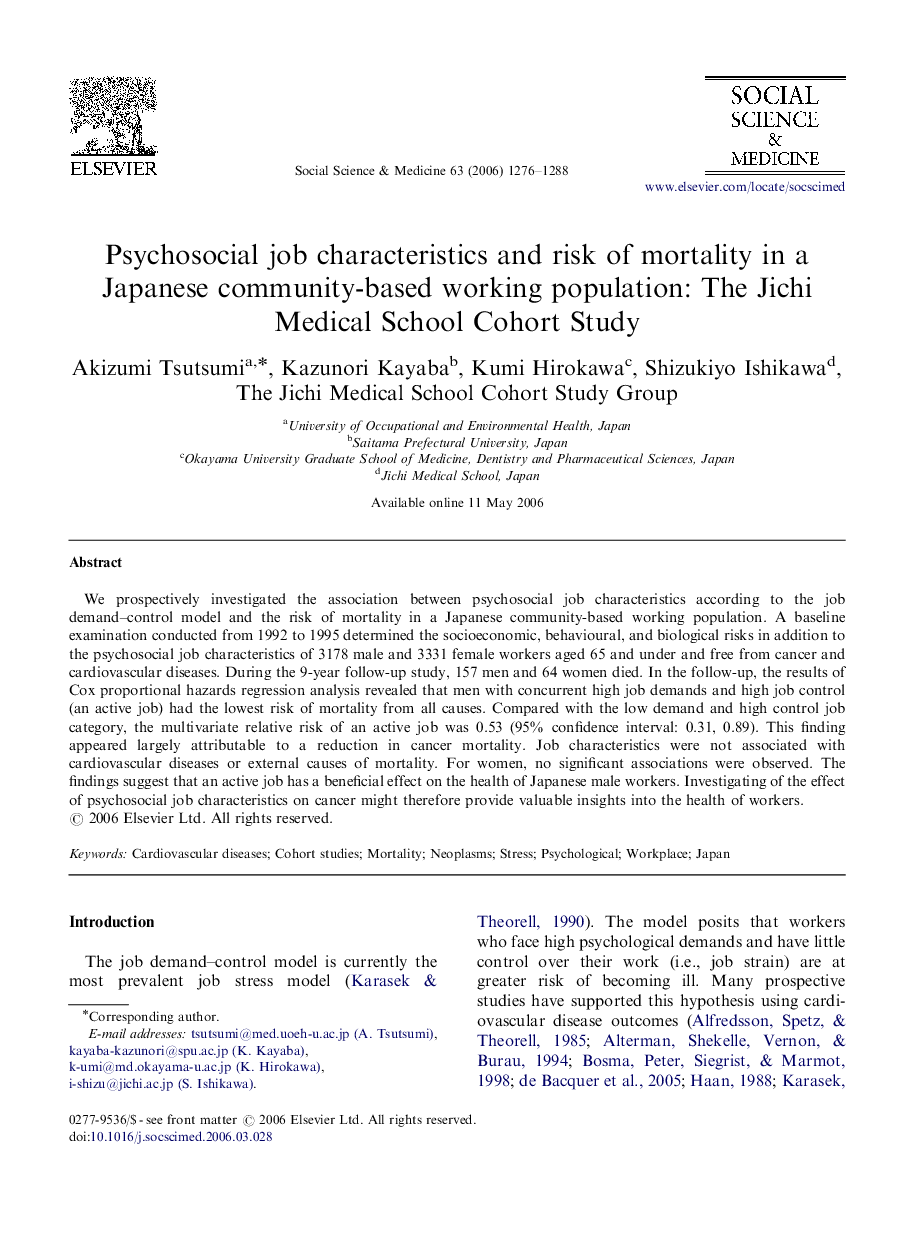| Article ID | Journal | Published Year | Pages | File Type |
|---|---|---|---|---|
| 954107 | Social Science & Medicine | 2006 | 13 Pages |
We prospectively investigated the association between psychosocial job characteristics according to the job demand–control model and the risk of mortality in a Japanese community-based working population. A baseline examination conducted from 1992 to 1995 determined the socioeconomic, behavioural, and biological risks in addition to the psychosocial job characteristics of 3178 male and 3331 female workers aged 65 and under and free from cancer and cardiovascular diseases. During the 9-year follow-up study, 157 men and 64 women died. In the follow-up, the results of Cox proportional hazards regression analysis revealed that men with concurrent high job demands and high job control (an active job) had the lowest risk of mortality from all causes. Compared with the low demand and high control job category, the multivariate relative risk of an active job was 0.53 (95% confidence interval: 0.31, 0.89). This finding appeared largely attributable to a reduction in cancer mortality. Job characteristics were not associated with cardiovascular diseases or external causes of mortality. For women, no significant associations were observed. The findings suggest that an active job has a beneficial effect on the health of Japanese male workers. Investigating of the effect of psychosocial job characteristics on cancer might therefore provide valuable insights into the health of workers.
